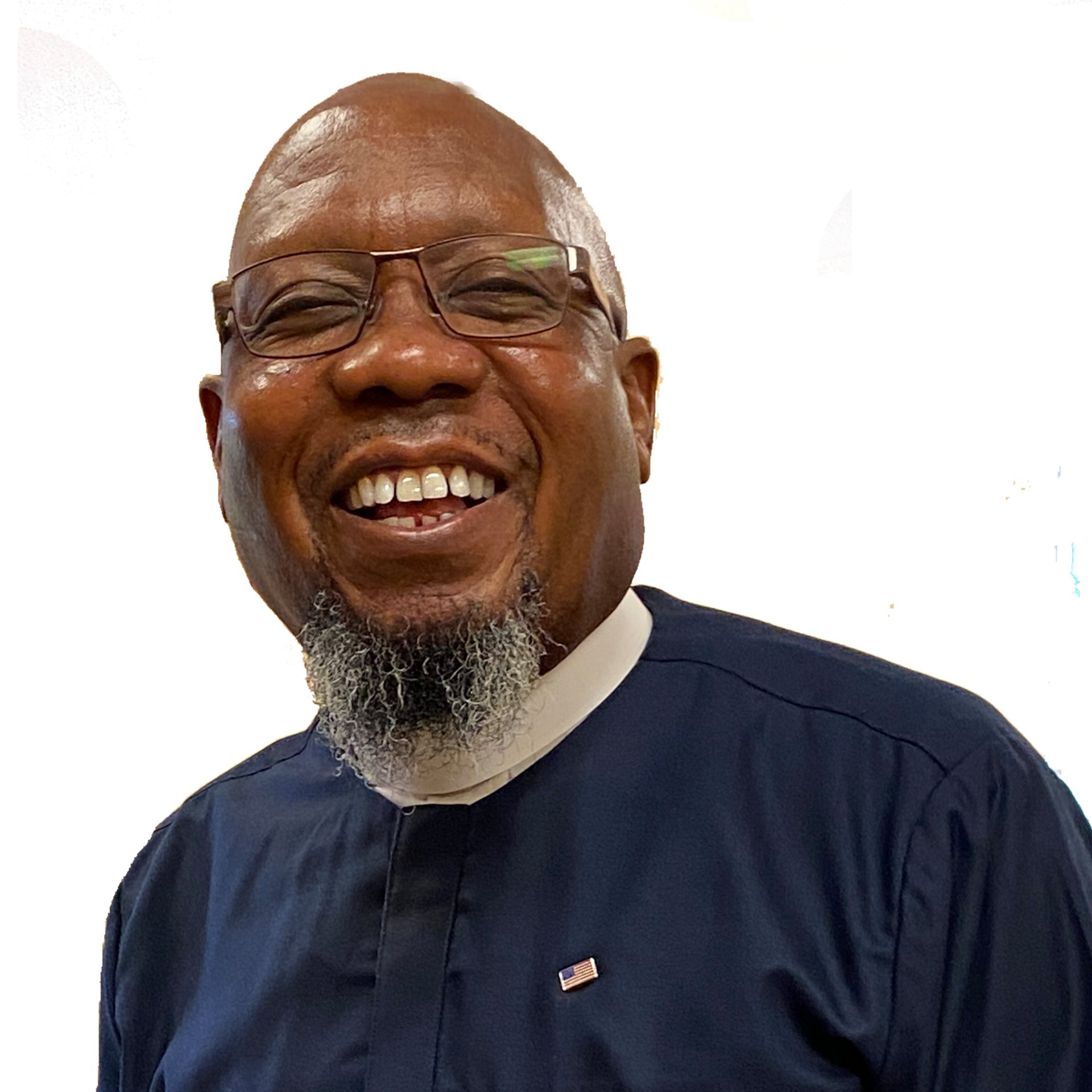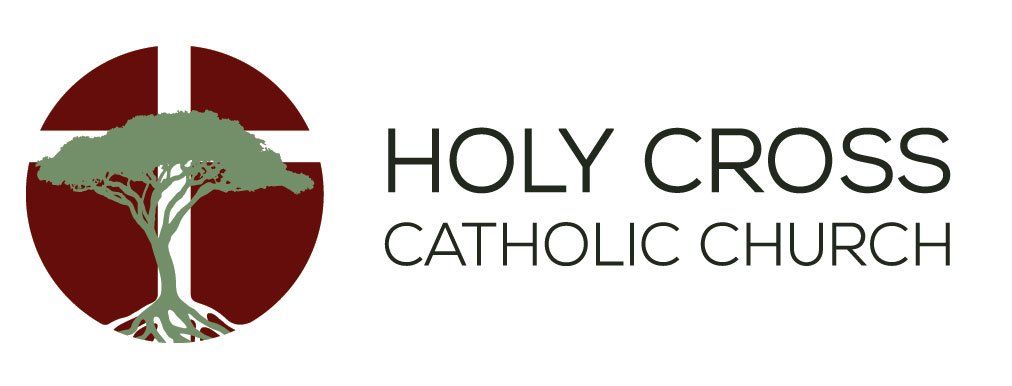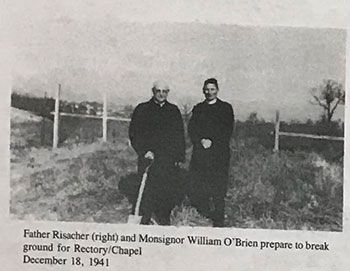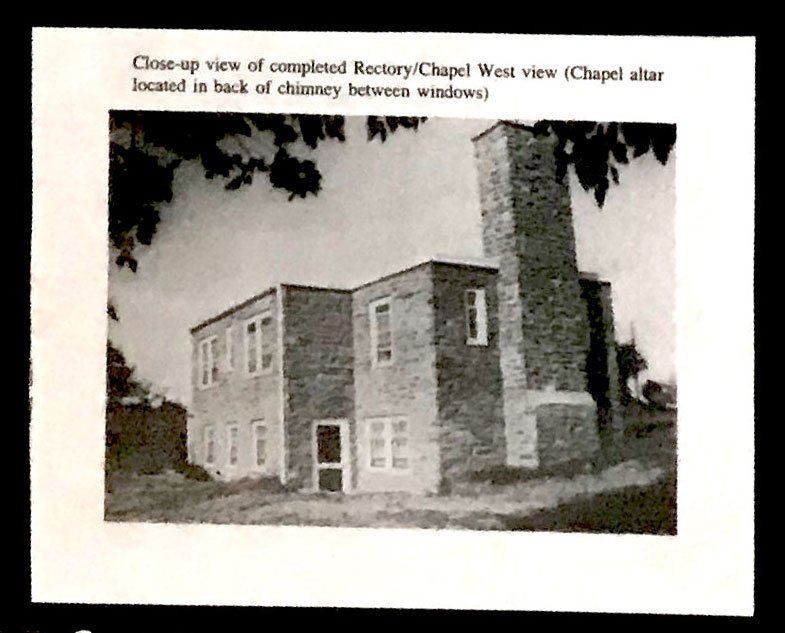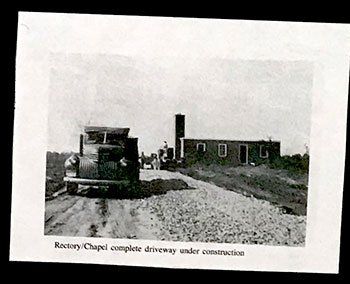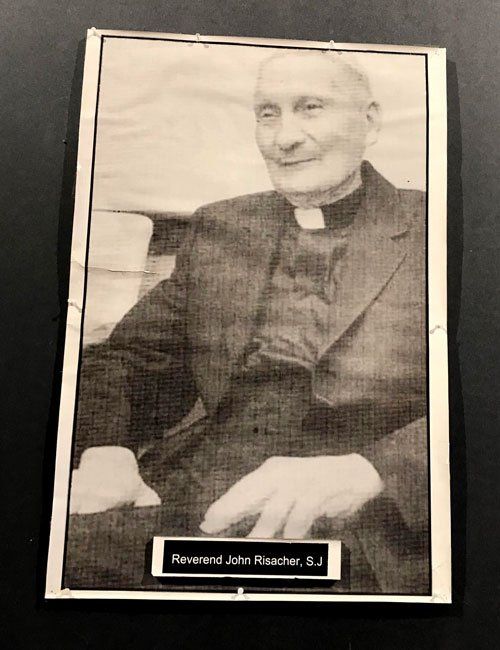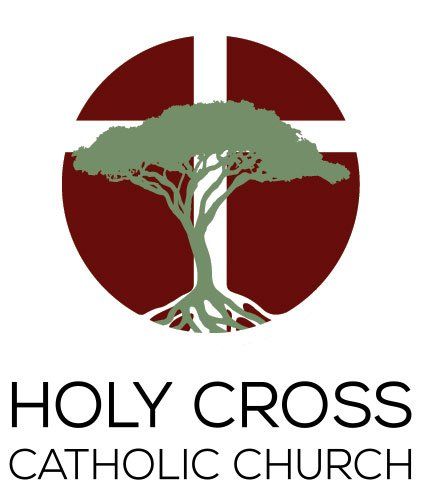Our History
Jesuit beginnings, Franciscan presence and now a Diocesan Parish
In April 2021, Holy Cross Church became a diocesan parish in the Diocese of Raleigh N.C., when Fr. Daniel Pal, OFM, was reassigned to a parish in Winston-Salem, N.C. He was the last of three Franciscan priests to serve Holy Cross, after Jesuit priests left the parish that they founded in 1939. The transitions were the result, for the most part, due to the lack of vocations to the priesthood in the religious orders.
On June 29, 2021, Fr. Pius Wekesa, previously pastor of St. John the Baptist Catholic Church in Roanoke Rapids, N.C., was announced as our seventeenth cleric – and first diocesan priest. He celebrated his first Mass as pastor of Holy Cross on Sunday, July 4, at 10 AM, and his installation Mass was held on July 18, at 10 AM, with Bishop Luis Rafael Zarama officiating. The parish expressed appreciation for the support provided by Deacon Phil Rzewnicki, OFM, who served as administrator, as well as visiting priests who celebrated Mass in the weeks when we were without a resident pastor.
Our Jesuit beginnings
In 1939, at the request of then-Bishop Eugene McGuinness, the second Bishop of the Diocese of Raleigh, the Maryland Province of the Society of Jesus agreed to staff a new mission for African American Catholics in Durham, N.C. Fr. John A. Risacher, S.J. was appointed to begin the new apostolate and celebrated the first Mass on December 5, 1939. Masses were first celebrated in the dental office of the late Dr. Norman Cordice and later in a classroom in the DeShazor Beauty Parlor Training School on old Fayetteville Street. In September 1940, the Society of Jesus purchased 16.9 acres at 1400 South Alston Avenue.
Architectural renderings for the mission were completed in 1941, and the rectory was constructed in 1942 with one room serving as the chapel. In 1953, the sanctuary at 1400 South Alston Avenue was completed and dedicated by Bishop Vincent Waters. Holy Cross was elevated from mission church to parish status in 1966, the year Fr. Risacher retired.
Over the years, all but 3.6 acres of the Holy Cross property were sold to the State of North Carolina for the expansion of the North Carolina Central University. Holy Cross grew to be a diverse congregation that at the time had a little over 350 families. The parish was approximately 69% African American, 20% Caucasian, 7% African, plus other ethnicities.
In order to expand Holy Cross facilities, the Maryland Province sold the remaining 3.6 acres to the State of North Carolina and purchased the current 20.1 acres at 2438 South Alston Avenue. In 2006 the new property was turned over to the Diocese of Raleigh. The new Holy Cross Sanctuary was dedicated on December 2, 2007 by the Most Reverend Michael F. Burbidge, the seventh Bishop of Raleigh.
In the floor of the gathering space of the current Holy Cross Catholic church is the symbol of the Jesuit order of priests. The symbol includes the letters IHS - a monogram of the name of Jesus - with a cross above and three nails below, surrounded by the sun's rays. Following are several archive photos showing construction of the original Holy Cross church, and our founding pastor, Fr. John A. Risacher, S.J. Following are a few photos from our archive.
Jesuit priests serving Holy Cross Catholic Church
- Fr. John A. Risacher, S.J. (1939-1966)
- Fr. Francis Scherer, S.J. (11/66-9/69)
- Fr. Frederick A. Brew, S.J. (6/69-9/69)
- Fr. Morgan J. Downey, S.J. (9/69-1/71)
- Fr. Paul J. Gilvary, S.J. (1/71-1/77)
- Fr. Francis M. O’Connor, S.J. (1/77-8/85)
- Fr. R. Bruce Bavinger, S.J. (8/85-7/96)
- Fr. David E. Barry, S.J. (7/96-7/98)
- Fr. Brendan H. Horan, S.J. (7/98-10/01)
- Fr. Stephen M. Garrity, S.J. (10/01-04/07)
- Fr. Francis M. O’Connor, S.J. (04/07-01/08)
- Fr. Robert Hussey, S.J. (01/08-08/08)
- Fr. Raymond Donaldson, S.J. (08/08 - 08/14)
Our Franciscan years
In September 2014, in collaboration with Bishop Michael Burbidge, then bishop of the Diocese of Raleigh, the Franciscan Friars Conventual from Our Lady of the Angels Province in Maryland, assumed responsibilities of pastoral leadership for Holy Cross, following the departure of the Jesuit priests who had ministered to the parish since its founding in 1939.
Conventual Franciscan Friars (Our Lady of the Angels Province in Ellicot City, Maryland) who served Holy Cross.
- Fr. Daniel Pal, OFM Conv. (2020-2021)
- Fr. Bart A. Karwacki, OFM Conv. (2018-2020)
- Fr. Andrew Santamauro, OFM Conv (2014-2018)
2021 | A Diocesan Parish
In 2021, Holy Cross became a parish of the Diocese of Raleigh when the Jesuit order withdrew. Fr. Pius Wekesa was introduced to the parish on June 29 and celebrated his first Mass as our pastor on July 4, when he was installed as our pastor by Bishop Luis Rafael Zarama.
